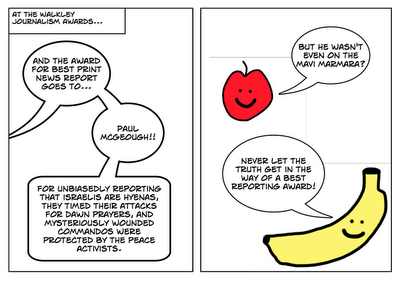1) At the Middle East Quarterly, Efraim Karsh discusses “An Inevitable Conflict“.
“It has long been conventional wisdom to view the June 1967 war as an accidental conflagration that neither Arabs nor Israelis desired, yet none were able to prevent. Had Egyptian president Gamal Abdel Nasser not fallen for a false Soviet warning of Israeli troop concentrations along the Syrian border and deployed his forces in the Sinai Peninsula, the standard narrative runs, the slippery slope to war would have been averted altogether; had Israel not misconstrued the Egyptian grandstanding for a mortal threat to its national security, if not its very survival, it would have foregone the preemptive strike that started the war. In short, it was a largely accidental and unnecessary war born of mutual miscalculations and misunderstandings.
This view could not be further from the truth. If wars are much like road accidents, as the British historian A.J.P. Taylor famously quipped, having a general cause and particular causes at the same time, then the June 1967 war was anything but accidental. Its specific timing resulted of course from the convergence of a number of particular causes at a particular juncture. But its general cause—the total Arab rejection of Jewish statehood, starkly demonstrated by the concerted attempt to destroy the state of Israel at birth and the unwavering determination to rectify this “unfinished business”—made another all-out Arab-Israeli war a foregone conclusion.”
2) At the Tablet, Israel’s State Archivist Yaacov Lozowick reveals previously unpublished transcripts from the Six Day War.
“The Six-Day War was run by a committee. A highly classified committee, whose transcripts have never been seen for 50 years. Until now: here they are.
Israel has no commander-in-chief. The military is subordinate to the cabinet, where each minister, prime minister included, has one vote. Often the cabinet sets up a smaller committee called the security cabinet (SC), to which it delegates supervising and commanding the military. Facing exceptional decisions, the prime minister may declare that the entire cabinet is the SC. This ensures secrecy, because leaking information from the SC has serious penalties. Prime Minister Levi Eshkol often reminded his colleagues that the very fact that they had met was itself a state secret.
The security cabinet of 1967 appears in these never-published transcripts as a group of serious, professional, and responsible decision-makers. While the ministers brought their worldviews to the table, they often didn’t vote on party lines, often did listen to one another, and generally managed to make decisions, albeit slowly and through compromises. These characteristics were not helpful in the maelstrom of the Six-Day War, when the cabinet receded in the face of its two most enigmatic members: Levi Eshkol, who can be read either as a weak figure or a master manipulator; and Moshe Dayan, who comes across as an arrogant but talented prima donna.”
A link to the Israel State Archives website section on the Six Day War is available in the ‘Library’ section on the menu bar above.
3) At the Algemeiner, Ben Cohen interviews Iran analysts on the topic of the presidential election in that country.
‘“The election in Iran is a tightly controlled and stage-managed process that has been designed to produce the favorable result to the regime,” said Reza Parchizadeh, an Iranian political analyst.
Saeed Ghasseminejad — an Iran Fellow at the Foundation for the Defense of Democracies (FDD) — observed that Rouhani was starting his re-election bid from a weak position, having achieved little over his four-year term other than the nuclear deal with six world powers in July 2015, which many ordinary Iranians complain has not yielded any meaningful economic benefits.
“However, Raisi is an even weaker candidate,” Ghasseminejad said. “He does not speak well, he is known for his ruthlessness (as Tehran’s deputy prosecutor) in the 1980s, he is inexperienced. The middle-class Iranians are really afraid of him, which pushes them to reluctantly vote for Rouhani.”’
4) David Andrew Weinberg and David Daoud discuss the Saudi Arabian approach to Israel at the Forward.
“Breathless observers have recently declared that Saudi Arabia and Israel are becoming cozy allies due to their shared concerns about Iran. Analysts have claimed that Riyadh’s “government and the establishment media – and their spin-offs and allies – are pursuing a deliberate strategy” of conveying praiseworthy tolerance toward Israel and Jews. Rudy Giuliani, a figure close to President Donald Trump, even went so far as to argue that Riyadh has done an about face on Israel and that this should guide U.S. policy toward the kingdom.
These observers are fundamentally wrong.”



